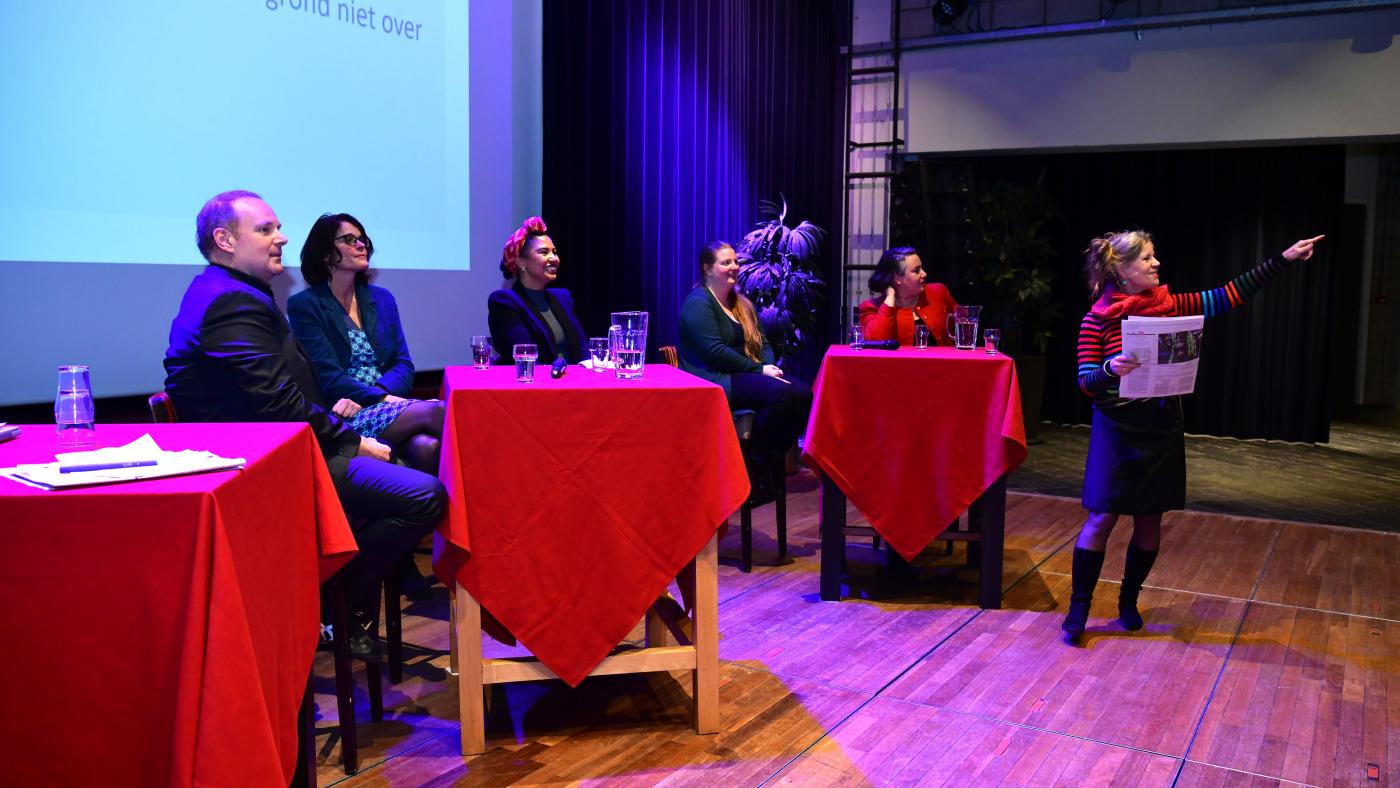'Every word is a potential minefield'
Higher education media holds conference about inclusive journalism

How can journalism be more inclusive? Speaker Elizabeth Venicz – an anthropologist, journalist, and lecturer at the Fontys University of Applied Sciences – introduced the topic in front of an audience of journalists from news outlets about universities and universities of applied sciences.
“Even as I was making this presentation, I was slightly jealous of colleagues who only have to discuss data. I’ve noticed that this subject is a huge struggle and I'm sure many other editors feel the same. Every word is a potential minefield and it's pretty complicated to navigate all those different ideas and political movements. It's impossible to do the right thing for everyone.”
Professional craft
Even so, Venicz says there are definitely ways to make one’s own compass and keep fine-tuning it. “Not all journalists share the same point of view. Positions can vary from conservative aristocrat to activist advocate. Regardless of where you stand, you can actively work on inclusive journalism. In my opinion, that’s a professional craft.”
She mentioned, for example, the importance of numbers: keeping track of the representation of groups in your articles is key. BBC, for instance, has clear objectives in this regard. But she also points out the importance of having a diverse editorial staff who will present a variety of perspectives. There are also considerations to be made regarding photography (how do we tend to photograph a professor or a homeless person? What clichés and preconceptions are we reproducing with these images?) and not reducing an interviewee to a "single story".
Venicz then joined a panel discussion about the subject, alongside Cleo Freriks (Editor at Observant, the magazine about Maastricht University), Peter Breedveld (from Ad Valvas, the news outlet of VU University Amsterdam), Tosca Sel (Editor-in-Chief at Profielen, the outlet of the Rotterdam University of Applied Sciences), and Sterre Mkatini, who serves as a Diversity, Equality and Inclusion Officer at the University of Twente. The discussion was led by Hiska Bakker, from Studium Generale at the University of Twente.
The panel members were presented with statements such as "higher education media have a leading role when it comes to diversity and inclusion" and "white journalists shouldn’t write about diversity and inclusion, considering their background".
Self-censorship or common sense?
The panel members were unanimous about higher education media having a prominent role. “It’s inherent to the community we’re writing for, we should go with the flow of certain developments,” argued Freriks. “We tend to quickly search for nuance, especially because we write about science a lot.” Breedveld added that striving to offer a nuanced perspective and taking sensitivities into consideration does not mean the same as censoring yourself. “I read in the [Dutch newspaper] NRC that ‘wokeness’ is threatening academic freedom and the Minister of Justice and Security, Dilan Yeşilgöz-Zegerius, says it’s a threat to our democracy. Our outlets are often accused of being 'woke'. But 'wokeness' is a frame. Our work consists of thinking carefully about what we write and how we write it. We don't stop reporting facts simply because they’re uncomfortable truths. That isn’t self-censoring, it’s simply common sense.”
Later in the discussion, Mkatini mentioned to the editors a certain responsibility, especially the risks of publishing a "single story". She referred to an article published by the regional newspaper Tubantia after an interview with her. “We spoke for more than an hour about all kinds of aspects of diversity, equality and inclusion. We talked about providing menstrual products for everyone who needs them for less than two minutes and that's what made the headline. The responses that followed were so harsh and aggressive that it took three weeks before I was brave enough to go to work using public transport again.”
Falsification
Another statement the panelists were presented with was related to archives: should news outlets go through their archives to remove articles that can now be seen as hurtful to certain groups or at least change them? “Definitely not, we would be falsifying or destroying history,” Sel responded fiercely.
Mkatini also opposed the idea. “I read OneWorld, for example. Something they do when they start using a different term is explain why they do so and why they had previously used a different word. That’s a method of adding to history, not deleting it. An archive doesn’t just show a time frame, it also shows the growth an editorial staff goes through. The way people write today differs greatly from the way people used to write twenty years ago.”